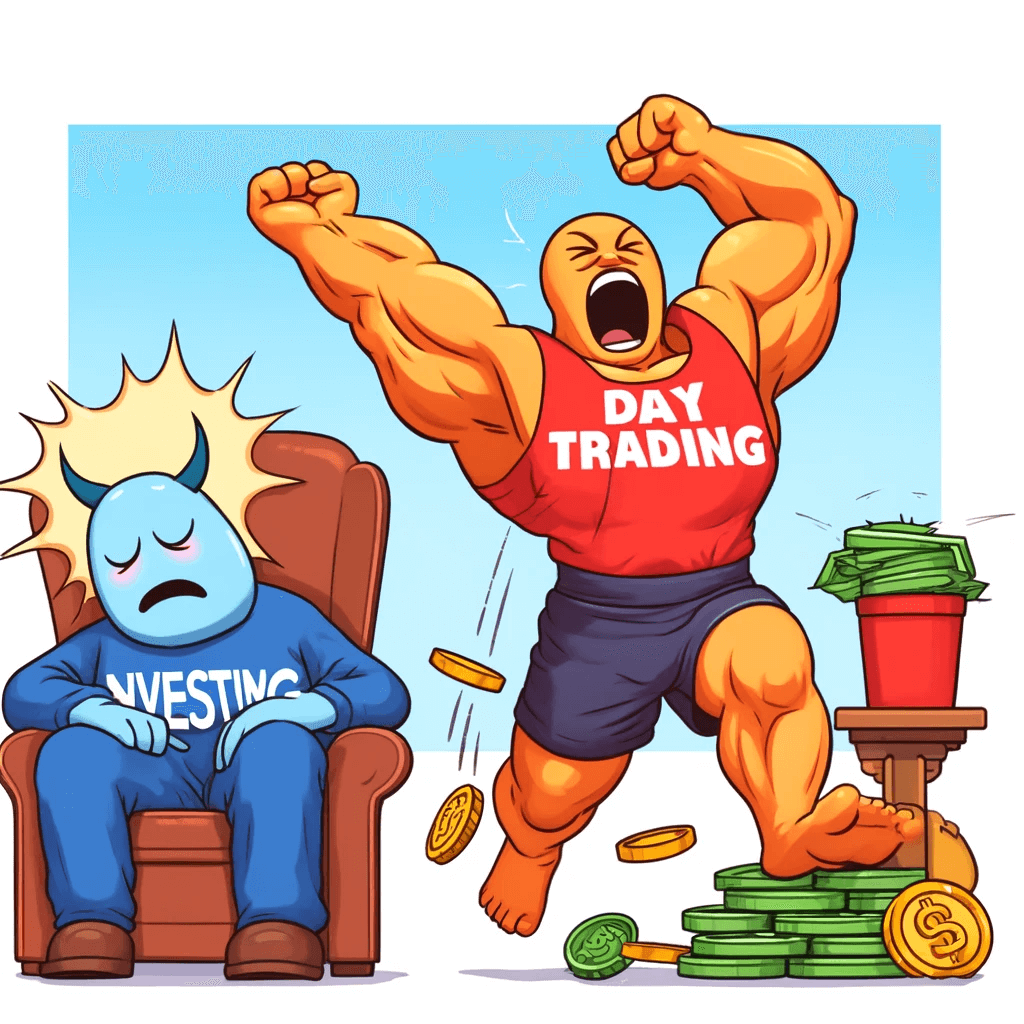Day Trading vs. Investing: Key Differences
Investing typically involves holding assets for longer periods, avoiding short-term trades and high-frequency trading. While investing aims to accumulate capital, earn dividends, and acquire ownership in companies through shares, its profit potential statistically falls short compared to day trading.
Day trading, conversely, entails executing a larger number of trades within a short timeframe and involves a significantly higher turnover of capital than investing. Day traders do not receive dividends or experience the sense of ownership associated with holding shares long-term. Instead, they utilize margin accounts and leverage extensively, primarily trading derivatives.
In summary, while investing focuses on long-term wealth accumulation and ownership, day trading is characterized by rapid trading activity, leveraging capital, and a higher frequency of trades. Each approach offers distinct advantages and considerations for traders and investors.
